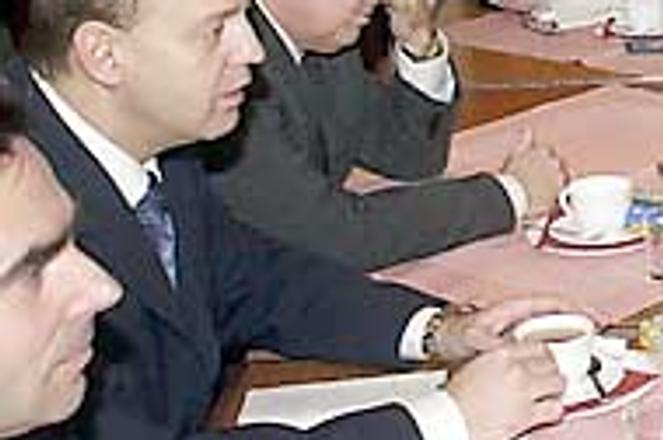photo: TASR
AT THE January 21 meeting between SIS boss Vladimír Mitro and the parliamentary SIS oversight committee, held in the wake of media allegations of dirty tricks in Slovakia's secret service, Mitro had to defend himself on a number of issues.
In addition to dismissing the allegations of foul play laid down in the Jane's Intelligence Digest article, he also denied claims that the intelligence service was involved in the illegal tapping of a mobile phone belonging to Pavol Rusko, deputy speaker of parliament and head of the coalition New Citizen's Alliance party (ANO).
Rusko alleges that his phone was illegally tapped, and has voiced suspicions that the SIS or special police departments could have carried out the surveillance in order to gather information on ANO members that could later be misused in political power games.
Rusko claims to have a cassette tape recording of an interview he gave to a journalist for the SME newspaper, in which part of the interview not recorded by the journalist appears - proving, Rusko says, that the tape was recorded by a third party. He has refused to turn the tape over to police, saying he does not trust law enforcement authorities.
Interior Minister Vladimír Palko has filed criminal charges against an unidentified offender for the alleged surveillance.
The allegations of phone tapping have created new ructions in the ruling coalition, as Rusko threatened to pull his party out of the coalition if his political partners did not explain police behaviour.
A four-hour meeting of coalition parties on January 21 failed to produce a breakthrough in the standoff, and the parties agreed to continue talks on January 28.
Rusko also claims that the Interior Ministry investigated a possible meeting between himself and alleged underworld crime boss Mikuláš Černák at the Hubert Hotel in the High Tatras mountain resort over the Christmas break. Rusko has denied meeting Černák.
Political analysts have speculated that this latest crisis may have roots in ANO's apparent interest in winning the right to appoint its candidates to senior police and secret service posts.


